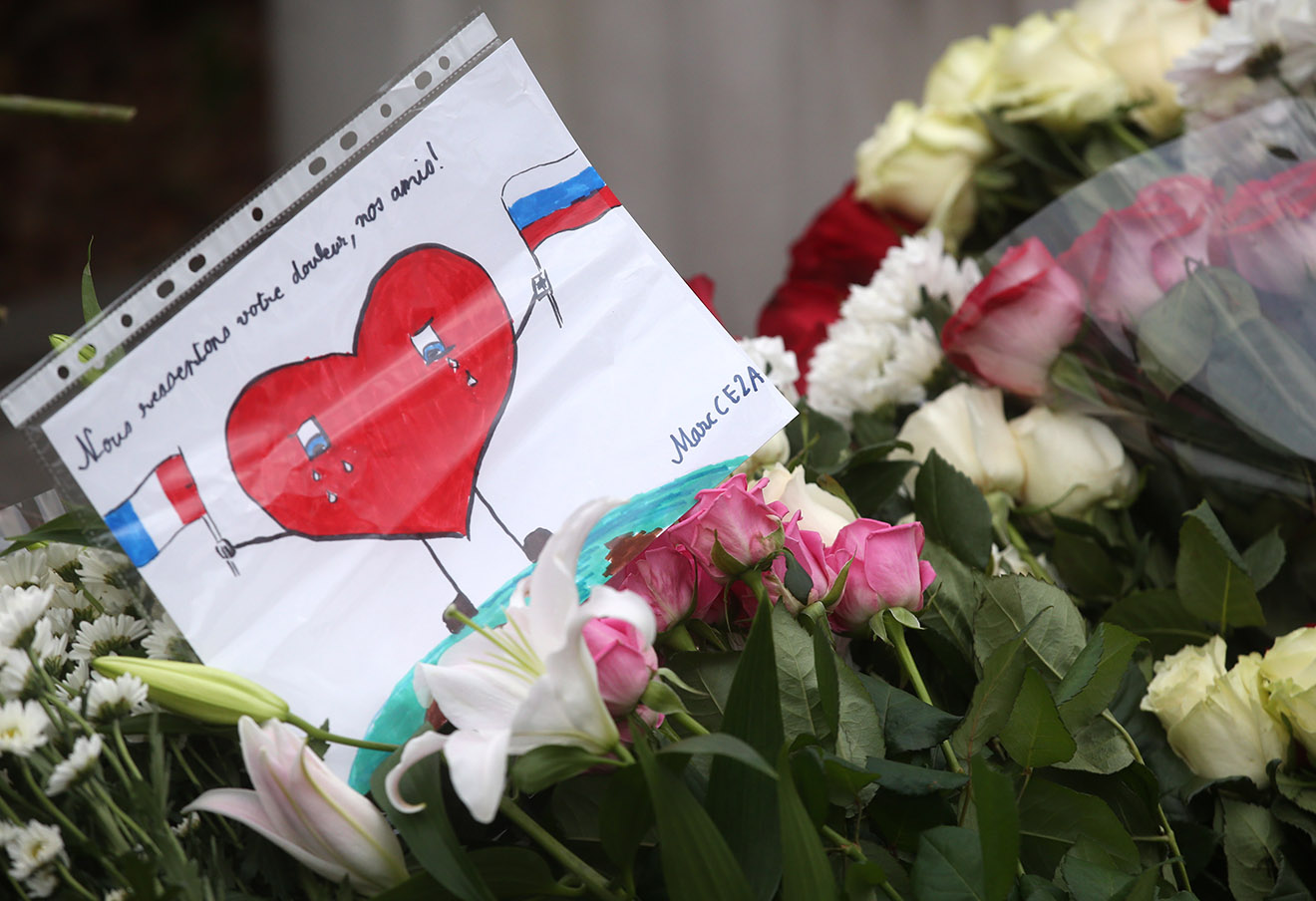“You can’t stand together shoulder-to-shoulder if you don’t share common values”

Today all normal people are feeling empathy for the French people, who have been subjected to yet another attack by terrorists.
A similar attack was perpetrated on my own fellow citizens not too long ago, and it was clearly not the last time. If we are not yet at war, then we are certainly standing on its threshold, even if it does have another form, differing from the one we knew in centuries past.
This is a conflict between two civilizations: the European one, which after centuries of mutual annihilation has acknowledged the supreme value of human life, and another one, which does not recognize this value and regards man merely as a means for attaining other goals which we may or may not understand.
Whose side is the Russian leadership really on when it declares that it is waging battle with the “Islamic State” in Syria? The answer is not at all obvious.
Since 1999 the Kremlin has been living in a perpetual “special operation” mode, when declared objectives and steps always (and I do actually mean always!) diverge from true actions and intentions.
The “absence” of Russian military service personnel in Crimea in 2014 and in Syria in 2015; the Malaysian “Boeing”, about which the Kremlin propagandists were asserting that it had been shot down by a Ukrainian attack plane — which everyone has already recognized as a blatant lie; the “independent court” trial of Savchenko and Sentsov. We could also recall the still not fully disclosed story with the hexogen in the apartment building in Ryazan, which they called “FSB training exercises”…
The Kremlin says one thing, but it thinks and does something else.
The “world war with the ‘Islamic State’” is a chance for the regime to pull itself out of that quagmire of world isolation into which it has thrust itself. It is a chance for Putin to realize his long-cherished dream of sitting down at the negotiating table with the US president and “deciding the fate of the world” together.
Negotiation is always a good thing, but what needs to be understood is that as far as the criterion of the value of freedom and human life is concerned, today’s Kremlin is on the other side of the dividing line that separates the democratic countries from both ISIL and Bashar Assad’s regime.
On the other hand, given the unreadiness of the rest of the Europeans to spend their resources and shed their soldiers’ blood, Putin’s Russia is the only possible serious ally for the US and Europe in this conflict.
All the more so given that if we are to indeed actually try and find a solution to the problem, there is no way to do this without revising the existing post-colonial order in the Middle East. And this unavoidably signifies the redrawing of boundaries and the formation of new states.
In particular, a solution will have to be found to the problem of the Kurds, at present perhaps the largest nationality deprived of the opportunity to have its own nation-state. Then there is the problem of guaranteeing the rights of the Sunni Arabs, which will most likely also require redrawing state and territorial boundaries. The list goes on.
To what extent is the West prepared to leave this region to its own fate? Are not the risks inherent in such a decision far too high?
One thing has become absolutely obvious: the highest risks come from “half-hearted participation”. An allowable alternative to self-removal is to convene an international conference to revise the boundaries in the Middle East and create an international coalition capable of deploying troops to maintain peace over the entire transition period.
Is Western Europe prepared to relinquish its place at this table to the Putin regime? Will not such a step become the precursor to yet another division of Europe itself into spheres of influence? To what extent is such an ally as the Putin regime acceptable for the US in today’s confrontation? And is it really an ally — or a part of the problem?
These are the questions that those who are prepared to fight for European civilization ought to find answers to. They would do well to remember the words of Benjamin Franklin: “Those who would give up essential Liberty, to purchase a little temporary Safety, deserve neither Liberty nor Safety”.
And we, Russians, ought to understand at last: we are a part of European civilization, and we have a common enemy. But you can’t stand together shoulder-to-shoulder if you don’t share common values. The last time this was tried, it ended in a “cold war” between yesterday’s allies — and one that nearly turned “hot” at least three times.
A country in which people like Kadyrov feel that they are in charge is not much different from the IS. The common struggle against a civilization that does not recognize the value of human life has to start with an acknowledgement of the supreme value of man, of his rights and liberties — not of some illusory “greatness of the state”.
Mikhail Khodorkovsky



